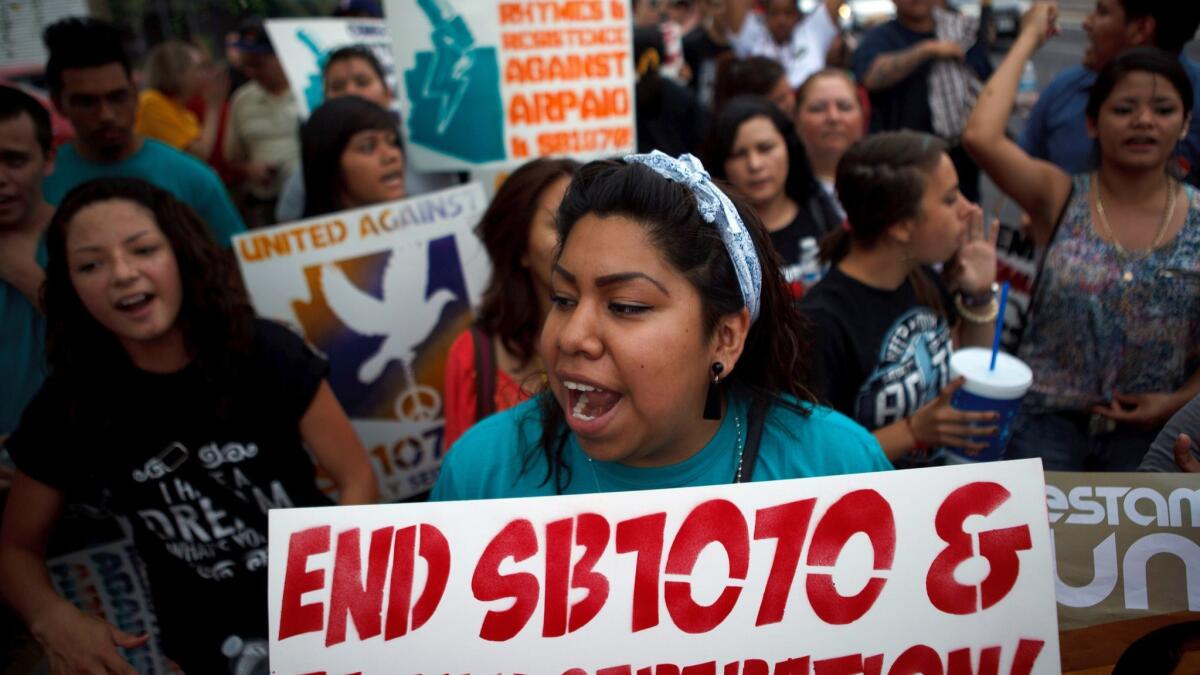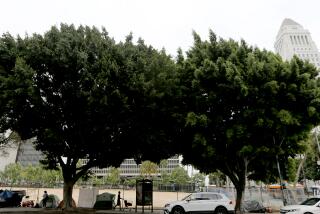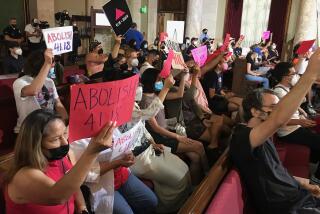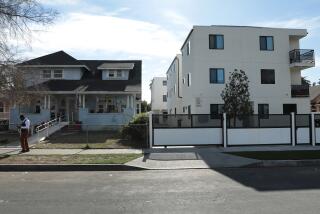L.A. may roll back ban on city travel to Arizona

Nearly eight years ago, Los Angeles lawmakers decided to protest an Arizona law targeting illegal immigration by barring city employees from traveling there on municipal business and urging city departments to avoid doing business with Arizona firms.
Now the city is poised to roll back those restrictions. At a committee meeting Friday, council members recommended ending the boycott.
The move comes after a series of legal battles eliminated or softened key parts of the hotly contested law.
There was no debate over the decision at the meeting, but Council President Herb Wesson, who heads the committee, said in a brief statement afterward that “court rulings on its major provisions effectively annulled the law.”
“Under the advice of our city’s immigrant advocate, we saw no further reason for keeping the boycott,” Wesson said.
Some L.A. lawmakers had also become skeptical of the travel ban after the City Council repeatedly loosened the rules to allow travel to Arizona for meetings and training and to keep buying Arizona products.
“If you’re going to do a protest action like that, you have to be very serious about it,” Councilman Marqueece Harris-Dawson said Friday. “The city just hasn’t done that.”
The decision on whether to rescind the restrictions now goes to the entire council for approval.
The polarizing law, SB 1070, allowed officers to arrest a person without a warrant if the officer believed the person had committed an offense that could lead to deportation. The law also made it a crime for people in the country illegally to seek work, and required police to check the immigration status of people they suspect are in the country illegally when they are stopped for other reasons, among other provisions.
At the time, a majority of Americans backed the Arizona law, according to a national survey. Illegal immigration opponents ushered in similar bills in other states.
But SB 1070 drew sharp condemnation from immigrant rights groups and spurred boycotts from several cities. L.A. lawmakers vowed to halt city travel to Arizona and forgo contracts with its companies, comparing the law to the internment of Japanese Americans during World War II.
L.A. did stop some official travel to Arizona in the years after the ban, bypassing a National League of Cities event and deciding not to send a Los Angeles Police Department team of helicopter pilots to a training conference. But the council also repeatedly approved exemptions to the rules, and in some cases, city staffers appear to have flown to Arizona without seeking an exemption, according to a city report reviewing the policy.
At a meeting two years ago, Councilman Gil Cedillo said he wasn’t upset about L.A. lifting the rules so it could carry out important business, but “what I find offensive — or unnecessary — is for us to pretend that we have a boycott” while approving exemption after exemption.
Cedillo had been a sharp critic of SB 1070, but he derided the city restrictions as a “so-called boycott.”
Several parts of the controversial law were struck down by the Supreme Court six years ago.
Immigrant rights groups later reached an agreement with the Arizona attorney general that stopped requiring police to demand papers from people suspected of being in the country illegally. Under the agreement, the attorney general instructed police not to prolong a stop “solely for the purpose of verifying immigration status.”
“The political landscape is different now” in Arizona, said Joseph Villela, director of policy and advocacy for the Coalition for Humane Immigrant Rights in Los Angeles.
As the city reexamines and possibly ends the Arizona boycott, “this is an opportunity for the City Council to have conversations about other states” such as Texas that have passed similar laws, Villela added. “And to make sure that when L.A. takes a stand, it has to be more than symbolic. ... Angelenos deserve concrete actions by the City Council instead of symbolic actions.”
Arizona is not the only place that L.A. lawmakers have singled out in protest in recent years. Council members have also sworn off doing business with North Carolina and Mississippi over laws that they denounced as discriminatory against gay, lesbian, bisexual and transgender people.
Those policies, however, do not explicitly ban city travel to those states, nor do they restrict the city from entering contracts with businesses based there.
Twitter: @AlpertReyes
More to Read
Start your day right
Sign up for Essential California for news, features and recommendations from the L.A. Times and beyond in your inbox six days a week.
You may occasionally receive promotional content from the Los Angeles Times.







